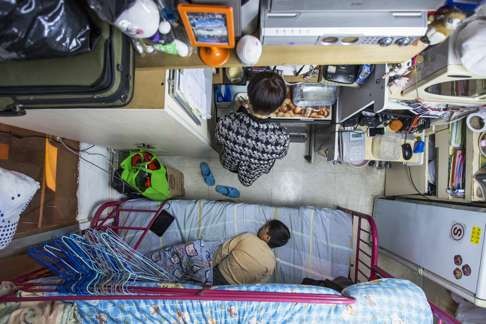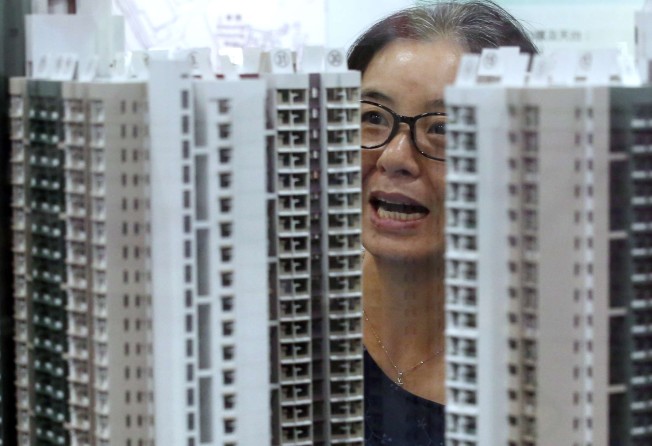
Improving quality of life and Hong Kong’s liveable city agenda

As we move into the period when Legislative Council candidates are starting to articulate their focus areas and, more particularly, as potential Chief Executive candidates begin to give thought to their manifestos, it might be timely to set out what I believe should be one of the key drivers from a community point of view – improving quality of life in Hong Kong and the our liveable city agenda from a housing perspective.
We make progress on the supply of land but affordability still remains a fundamental challenge. There is much talk about a range of “smart city” initiatives but we still fail to address the issue of housing in a holistic and integrated manner. Quality of life priorities obviously differ from person to person, family to family, but I consider housing to be common to all.
In response to affordability, we are building smaller and smaller flats but these are unlikely to meet the aspirations of future generations and there is a real risk of increasing social problems including smaller families with fewer and fewer children. Finding a solution clearly requires some radical thinking but there is the opportunity to review residential land pricing policies and sales conditions in certain pre-determined areas such as the proposed new towns in the New Territories and, when it eventually happens, the East Lantau Megopolis. Perhaps we could specify minimum unit sizes in future land grants rather than minimum unit numbers.
With a view to increasing affordable stock we should also revisit the proven model successfully implemented in other jurisdictions where affordability is also an issue under which developers are required in the case of larger projects to provide a certain percentage of affordable/social housing within the development.
We also need to step back and consider carefully where we are heading in terms of public rental housing (PRH). If government’s predictions prove correct we will have more than one million public rental units in Hong Kong in 10 years. This is not a tenable model over the longer term with an increasing burden on the community in the form of subsidised occupation and, ultimately, replacement costs.
Having been a member of the Housing Authority I fully accept and, indeed, advocated that we should help those who cannot help themselves. However, there are clearly different levels of assistance which might be provided and over time we should be actively seeking to convert as many as possible of these renters into owners.
Under such a scenario, whereas government at present under its land supply programme is allocating 60 per cent to PRH and 40 per cent to the Home Ownership Scheme (HOS), I consider that, with a view to encouraging the move from rental to ownership, we should be looking to significantly increase the HOS percentage and correspondingly reduce the PRH allocation.
This would need to be accompanied by a proactive, properly resourced campaign to encourage existing PRH tenants (and those in the PRH queue who might be able to afford to do so), to look at HOS as a viable stepping stone on the overall home ownership ladder.
Two other housing-related issues which also need to be resolved are those of subdivided flats, particularly units in older buildings with inadequate services and facilities, and the whole question of village housing.

As regards the former, it has to be recognised that until the supply of new affordable units is available, then subdivided flats are an essential part of our residential stock. However, steps need to be taken to ensure that they are safe for occupation and that landlords are required to provide minimum standards of service. As to village housing, this is a long-standing issue which will only get more difficult the longer it remains unaddressed and we will ultimately need, I believe, to consider either monetising substantiated claims or to provide the opportunity to buy an appropriately priced HOS unit by way of a substitute.
We also need to address as a matter of priority how we are going to deliver housing for the elderly, given that by 2035 a third of our population will be aged over 65. We do not have the luxury of large tracts of land on which to develop retirement villages and elderly residential care communities, hence the focus of present and future policies will have to be one of ageing in place in so far as is possible.
However, many of our existing residential buildings are not appropriately designed and we will need revisions to the building regulations to ensure new accommodation can cater to the needs of older residents. In reality, whereas with new builds requirements can be written into lease conditions, retrofitting of existing buildings will need to be incentivised with adequate financial assistance being made available.
If government’s predictions prove correct we will have more than one million public rental units in Hong Kong in 10 years. This is not a tenable model over the longer term
We have positive experiments being undertaken by the Housing Society, such as Tanner Hill in North Point, but single category housing of whatever nature and form is not the ultimate answer as it badges and segregates those who live in such developments.
If we are to maintain balanced communities (to the benefit of all age groups), then as people age they should be able and encouraged to remain within their existing living environment and not isolated from their families and friends. Again, developers of large schemes should be encouraged and incentivised through land premium adjustments to include an allocation of appropriately designed units for older buyers, perhaps on the lower levels.
This is, in fact, similar to the model which is now being offered by the Housing Authority in some new estates and there will need to be a corresponding increase in provision for the elderly in the public as well as the private sector.
There are many other factors which contribute to a sustainable quality of life and adequate open space, clean air and water, health care and education are also fundamental elements. However, resolving the housing challenge, which underpins the fabric of a society and its social stability, should be the priority of those seeking to enter Legco or to lead Hong Kong in the future.
Nicholas Brooke is chairman of Professional Property Services